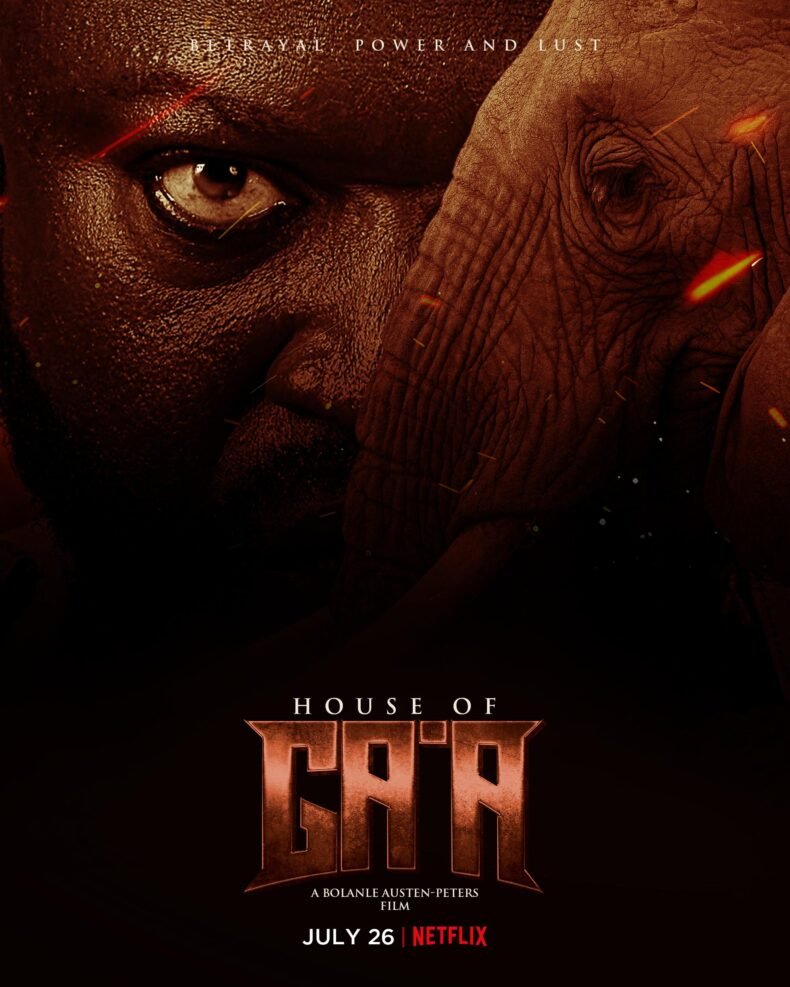House of Ga'a: Actors At Work
Nollywood REinvented
Femi Branch, Mike Afolarin, Funke Akindele, Toyin Abraham, Ibrahim Chatta, Dele Odule, Bimbo Manuel, Lateef Adedimeji, Femi Adebayo, Gabriel Afolayan, Jide 'JBlaze' Oyegbile, Seun Akindele, Yemi Blaq, Adeniyi Johnson, Muyiwa Ademola, Willam Benson, Gbenga Titiloye, and Kunle Coker.
Bashorun Gaa recounts the rise and fall of a ruthless kingmaker who wielded deceit and voodoo to reign, only to be undone by his own blood.
2hrs
Bolanle Austen-Peters
Bolanle Austen-Peters & Joseph Umoibom
Tunde Babalola
2024
Netflix
Bolanle Austen Peter’s House of Ga’a continues in line with the recent stream of Yoruba Period Piece’s in Nollywood. And thankfully it is a welcome addition.
House of Ga’a is about the life of the infamous Bashorun Ga’a (Femi Branch), a powerful warrior in Oyo-Ile whose lust for power leads him to great heights but also ends up as his downfall. The story meets us with Ga’a already being a force to reckon with in Oyo-Ile and then it delves deeper into his lust for power and how that manifests in the kingdom, the palace and his family. The film does brilliantly in telling this story centered on one political figure but giving equal importance to other facades of his life. We see his love for his sons very clearly, the importance of family to Ga’a is also shown without the overt expressions usually used, his romantic side is shown as well as his violent side, and his vengeful side as well as his tempered side.
Femi Branch as Bashorun Ga’a is simply brilliant. I hold that there was only one frame of the movie where my brain goes “oh look it’s Femi Branch” after that first frame he became the character and Branch was nowhere to be seen. But this is a common thread throughout the movie. It is remiss to even consider a conversation about House of Ga’a without making mention of the brilliant performance from Jide ‘JBlaze’ Oyegbile who plays Olaotan one of the sons of Ga’a. Characters who are violent in nollywood movies are a dime a dozen, however, those who manage to do it so effortlessly with such unquestionable swagger can be counted on one hand and Oyegbile would always make the list. He embodies the true viciousness that his character is supposed to represent while finding a way to strike a balance of endearingness and wholesomeness in his scenes with his brother Oyemekun (Mike Afolarin). The cast of Bashorun Ga’a is hefty on skills and the screen is hefty on cameos. From Gbenga Titiloye to Stan Nze, the producers have no qualms on bringing in strong performers only to kill them off in the next scene but this too adds to the appeal of the experience.
The greatest downfall of House of Ga’a is the graphics and the scale of production. Too many of the CGI scenes were simply comical to watch. I don’t recall if this is a common thread with the other Period Pieces, however it is much too glaring here to overlook. And then there are certain scenes where it is clear that the ambition and the budget were butting heads with no clear winner. One of such scenes is the opening battle scene between Ga’a’s people and the Nupe army. Something about the way the scene is captured here and the way the fight is choreographed would have been enough to cause the average non-dedicated viewer to click out.
That being said, the filmmakers do a great job of world building with the resources they have. Never once does one doubt the true power Ga’a wields and this is done by a collaboration between writing, performances and cinematography. The movie is never scant and as such the feelings of strength and presence are always sent through. The choice of the writer to also focus on the beginning of the end of Bashorun’s reign instead of a sweeping history from birth is wise as it allows the audience to spend more time with the little minutiae that end up leading to the expected downfall of our lead.
The experience of watching House of Ga’a is impressive and entertaining. Despite flaws here and there, it is an immersive experience.








